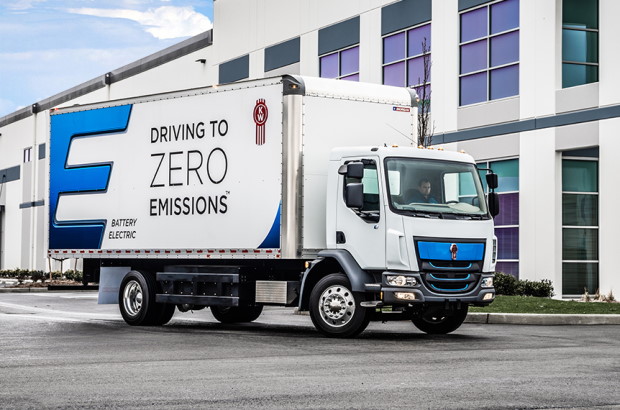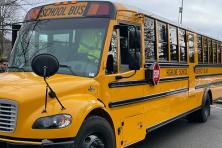The impacts of our dependence on fossil fuels are becoming clearer all the time. In Washington, we’ve experienced record-breaking heat, and across the world, communities are suffering truly horrific impacts, like the deadly flooding right now in Pakistan. We’ve also seen the results of relying on the fossil fuel economy, which not only funds warmongering dictators, but also leaves oil companies with the ability to pocket massive profits–over $1 per gallon in Seattle–while many people struggle with costs. The need to clean up our transportation system is obvious.
When we last sent an update about transportation, our Legislature had wrapped up their session passing Move Ahead WA, a green transportation revenue and spending package. A lot more has been happening this summer, so I wanted to provide a short update on some of our top transportation policy priorities as we head into September.
Cleaner fuels are coming
Just last week, our Department of Ecology finished gathering public comments as they work to finalize our state’s Clean Fuel Standard.
Climate Solutions strongly supports the pollution reduction trajectory defined in the rule, which requires a 20% reduction in the carbon intensity of transportation fuels in 2034. This trajectory, the most ambitious possible under current law, better aligns with achieving the reduction in greenhouse gas emissions that Washington is committed to by law. It will also lead to air pollution reductions, health benefits, and will send a strong signal that Washington is primed for greater investments in clean fuels. We advocated alongside a broad coalition of environmental organizations, community groups, businesses, and local elected officials in support of this strong standard, and we hope it remains in the final rule.
Next steps: the state will finalize the rule by the end of this year, and it will go into effect on January 1, 2023. Stay tuned; we’ll be sharing more clean fuels success stories in the months ahead. In neighboring states like Oregon, we’ve seen new electric school buses, more charging stations, and even electric tractors thanks to their Clean Fuel Standard, and we look forward to spreading the word about the results as they happen here in Washington.
Clean cars for CA–what does it mean for WA?
The transportation sector makes up about 45% percent of Washington State’s greenhouse gas emissions, and about half of that comes from passenger cars, trucks, and SUVs.
You may have seen last week’s news that California announced a big move: by model year 2035, all new passenger vehicle sales must be zero emissions. Back in 2020, the Washington Legislature passed a law requiring our state follow California's zero emission vehicle standards, which means we will be adopting this regulation as well. In fact, our Department of Ecology has already begun its formal rulemaking process, and will adopt these standards by the end of the year!
We still need to go big on electrifying medium- and heavy-duty vehicles
We’ve made significant strides by passing the Clean Fuel Standard, and with sales of zero emission passenger vehicles rapidly accelerating, we’re now focusing on the dirtiest tailpipes left: medium- and heavy-duty vehicles. Whether it’s school buses and garbage trucks driving their routes through our neighborhoods, delivery vans going back and forth, or semi-trucks hauling containers from the port (“drayage”), there are a lot of big vehicles in our midst relying on diesel to power their engines, creating serious hazards for our health and for the climate.
That’s why we’re encouraging the Legislature to do what is necessary to cut pollution from this sector. Clean options exist, but they are currently more expensive. At the same time, we can’t simply wait for costs to come down: we need to act now. The State should provide robust incentives for zero emission medium- and heavy-duty vehicles, as Massachusetts, New Jersey, New York, and California have done with great success. The Climate Commitment Act will bring in revenue that must be spent to reduce climate pollution and improve our health, and this is one such program.
The vehicles are here–let’s get them on the road.
There are big changes ahead for clean transportation, and more work to be done! Thanks to the major climate legislation passed by the federal government this month, we’ll see more money to spend on clean energy solutions in our communities, yet our state leaders must keep acting to accelerate that investment in our climate and our health. We’ve made massive progress, and we should celebrate that, but the work continues.





